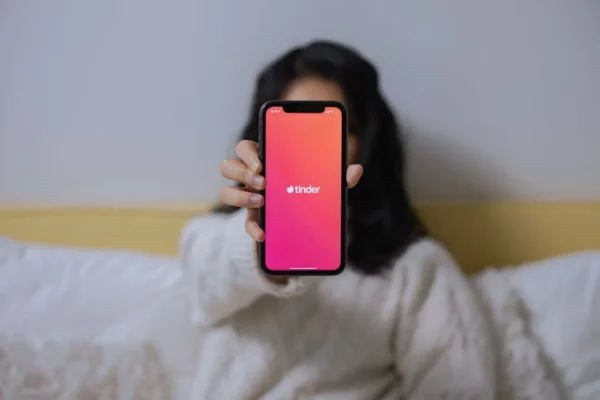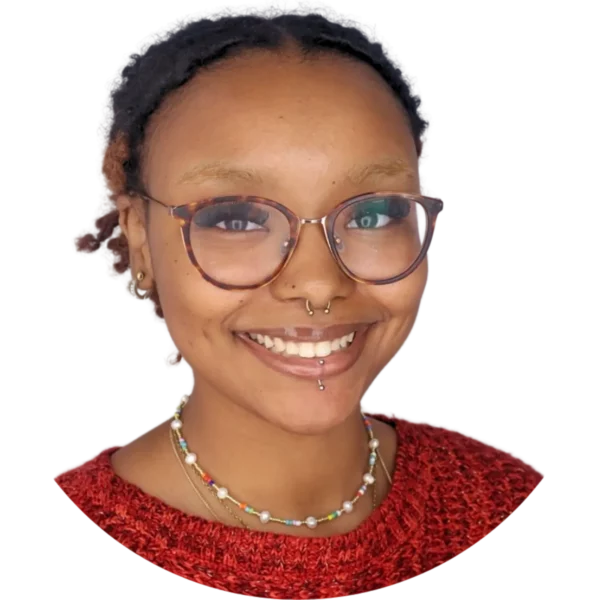Why Dating Apps Fail:
Common Mistakes in Modern Dating
In today’s digital age, dating apps have become the go-to platform for meeting new people and forming romantic connections. Yet, despite their popularity, many users experience frustration, disillusionment, and a lack of success. From ghosting to unfulfilled expectations, there are several reasons why dating apps often fail to deliver the desired results. In this blog, we’ll explore the most common mistakes made by users, the hidden dynamics at play, and practical tips on how to navigate the world of online dating more effectively.
Unrealistic Expectations Set by Dating Apps
Many dating apps advertise themselves as the perfect solution for finding love, but the reality is far more complicated. Often, users approach these platforms with inflated expectations, assuming they’ll find the perfect match quickly. Dating apps promote the idea that endless options mean higher chances of success, but this can actually lead to disappointment.
The Paradox of Choice
One of the biggest reasons dating apps fail is the “paradox of choice.” With so many profiles to swipe through, users can become overwhelmed, leading to decision fatigue. Instead of carefully considering each match, people may feel inclined to keep searching, convinced that someone better is just one swipe away. This endless cycle often results in missed opportunities and dissatisfaction.
Lack of Genuine Communication
Another major reason dating apps fail is the lack of meaningful communication. Many users rely on short, superficial messages or vague introductions, which make it difficult to build genuine connections. This often results in matches going nowhere, with conversations fizzling out before they even begin.
Fear of Vulnerability
Building a meaningful relationship requires vulnerability, but many dating app users hesitate to open up. This fear of being rejected or judged leads to surface-level interactions that lack depth. Conversations tend to stay in safe, generic territory, and potential connections are often lost because neither party is willing to take emotional risks.
Overemphasis on Physical Appearance
Dating apps are largely built around images, and this emphasis on physical appearance can reduce meaningful connections. While attraction is important, placing too much value on looks leads to shallow interactions. People may reject potential partners based solely on appearance, missing out on deeper compatibility that could emerge through conversation.
Dating Apps & Ghosting
Ghosting—where one person abruptly stops responding to messages—is a widespread issue on dating apps. It happens when communication starts, but one person loses interest or becomes distracted by other matches. This lack of closure can lead to frustration and discourage people from continuing to use the platform. Ghosting is often a byproduct of the casual, fast-paced nature of dating apps, where commitment to a single conversation feels less necessary.

Dating Apps Algorithmic Limits & Poor Match Quality
The algorithms that power dating apps are designed to match people based on preferences and behavior, but they’re far from perfect. Often, the recommendations aren’t accurate, and users may find themselves matched with people who don’t align with their values, goals, or interests.
Over-Reliance on Algorithms
While dating apps claim to use sophisticated algorithms to find compatible matches, these algorithms can’t account for the complexity of human relationships. Emotional connection, chemistry, and shared experiences are difficult to quantify. As a result, users might end up with matches that look good on paper but lack the spark needed for a successful relationship.
The Impact of Swipe Culture
The “swipe culture” of dating apps encourages quick, often superficial decisions. Users might swipe left or right based on a photo or brief bio without giving much thought to the potential for deeper connection. This habit fosters a culture of judgment and instant gratification, rather than thoughtful engagement with potential partners.
Inconsistent Use of the App
One reason dating apps fail is that many users log in sporadically, making it hard to maintain consistent communication. Without regular engagement, potential matches go cold, and conversations lose momentum. Consistency is key to forming connections, but many users don’t invest enough time to see results.
The Emotional Toll of Dating Apps
Using dating apps frequently can take an emotional toll on users, especially when faced with rejection, ghosting, or poor-quality matches. The highs and lows of the experience can lead to burnout and disappointment.
Dating Fatigue
Swiping through countless profiles, engaging in conversations that lead nowhere, and facing repeated rejection can cause dating fatigue. Users may become disillusioned, feeling that the effort outweighs the potential rewards. This fatigue often leads people to leave dating apps or approach them with less enthusiasm, reducing their chances of success.
Emotional Detachment & Burnout
The repetitive nature of dating apps can lead to emotional detachment, where users become desensitized to the process. After so many unfruitful matches, it’s easy to stop investing emotionally, which further diminishes the chances of forming a real connection. Burnout from dating apps is a common problem that leads many to give up on online dating altogether.
How to Improve Your Experience on Dating Apps
Despite the challenges, dating apps can still be an effective tool for finding meaningful relationships. With the right approach, you can avoid common pitfalls and increase your chances of success.
- Be Clear About Your Intentions
Setting clear intentions from the start helps weed out incompatible matches. Whether you’re looking for something casual or a long-term commitment, being upfront about your goals can save time and lead to more successful matches. - Prioritize Quality Over Quantity
Instead of swiping through endless profiles, take time to engage meaningfully with a few potential matches. Focus on quality conversations rather than juggling multiple shallow interactions. Building a genuine connection with one person is often more rewarding than playing the numbers game. - Stay Patient & Persistent
Success on dating apps takes time, and it’s important to stay patient. If you don’t find the right match right away, don’t be discouraged. Consistent use, combined with thoughtful engagement, will increase your chances of finding a meaningful connection over time.
Final Thoughts On Dating Apps in Modern Dating
While dating apps offer convenience and access to a large pool of potential partners, they are not without their challenges. Unrealistic expectations, poor communication, and algorithmic limitations can all contribute to a frustrating experience. However, with a mindful approach and a focus on quality interactions, dating apps can still be a useful tool for finding meaningful connections. By adjusting your expectations, improving communication, and staying patient, you can overcome the common reasons why dating apps fail and increase your chances of success.
Frequently Asked Questions
About Online Therapy at Mind by Design Counseling
Where are you located? I need a therapist near me
We are fully online, which means that your therapy sessions will be help via video call on our HIPAA compliant Platform. Anyone in New Jersey can access our therapy services
How do I get started as a new client?
New Clients can reach out to us directly via call, text or email here:
Does my insurance cover my visits?
We provide”Courtesy Billing” for clients who are using the Out-of-network insurance benefits.
Our Insurance Page might answer your questions about your insurance information, cost and OON coverage.
What are out-of-network benefits?
Visits our FAQ About Insurance to learn more about OON coverage for mental health services. We can also check your benefits for you. When using OON benefits, patients typically pay the full cost of the treatment upfront and then file a claim with their insurance company for reimbursement.
Is Online Therapy As Effective As In-Person Therapy?
Online therapy is essentially face-to-face counseling, just conducted remotely. Studies show that tele-therapy is as effective as traditional counseling. Professional organizations and state governments recognize its benefits and have set regulations for it. However, like any therapy, its success in achieving your goals isn’t guaranteed. It’s important to discuss with your therapist whether tele-therapy is working for you.
How Should I Prepare for My First Session?
Showing up is all that you need to do! But if you really want to get the most out of session, it could help to take some time to think about what you want from therapy. It helps to write down your goals, questions you have or things that you feel are important to share.
Do you offer traditional talk therapy?
of course! though we have some unconventional therapy approaches, we are rooted in evidenced based practices. Talk therapy is a major player in the therapy room! See What we Treat and Integrative Services for more information
Is Virtual Counseling Suitable for Everyone?
Online therapy might not be as effective for individuals with chronic suicidal thoughts, severe trauma, significant mental health history, or those recently in intensive care. Such cases often benefit more from traditional, in-person counseling. We’ll help you decide if our online services are right for you during your intake and evaluation.
Can I Change Therapists If I'm Not Happy?
Yes, you can switch therapists to another provider within the practice, or we can provide you a referral if preferred. We want to ensure that your time and effort are well spent, and that you are getting the relief you need, that’s why we work collaboratively with each other in the practice, as well as outside therapists who we know and trust.
How Do I Know If Therapy Is Helping?
You should feel like you’re making progress. Signs it’s working include:
- Feeling comfortable talking to your therapist
- Your therapist respects boundaries
- You’re moving towards your goals
- You feel listened to
You’re doing better in life - Your self-esteem is getting better
What is your cancellation policy?
We ask that clients provide at least 24 hours notice in the event that they need to cancel to avoid the 50% cancellation fee. we understand that life happens and do our best to be flexible & reschedule.
What Geographic Areas Are Served?
Currently, we serve clients in New Jersey and are expanding to other states as telehealth laws evolve. While telehealth offers the convenience of attending sessions from anywhere, state laws require clients to be in-state during their session.
Is Online Therapy Easy to Use for Non-Tech-Savvy People?
Yes, it’s pretty simple to access sessions. You’ll need basic internet skills, such as opening and visiting the patient link sent to you via email. It’s similar to video chatting like Facetime or Zoom. We can also walk you through it on the phone the first time to ensure a strong connection
What Questions Should I Ask My New Therapist?
Feel free to ask anything. Some good questions are:
- How often will we meet?
- What do you specialize in?
- What experience do you have with my issue?
- What outcomes can I expect?
- How will I know I’m progressing?
- How long do you usually work with clients?
- How will we set my treatment goals?
What is the difference between associate therapists & fully licensed therapists?
Our Qualifications:
Our founder, Rebecca Sidoti, is a highly qualified, state-licensed therapist and supervisor with extensive training in anxiety related disorders and innovative treatment such as Ketamine Therapy. Mind by Design Counseling adheres to standards set by the our governing counseling boards.
To see each providers credentials, training and licenses, visit our “Meet the Therapists” Page to learn more.
- LAC/LSW are therapists who may practice clinical work under the supervision of a fully licensed therapist.
- LPC/LCSW are therapists who have completed the necessary clinical hours post-graduation under supervision and can practice clinical work independently.







